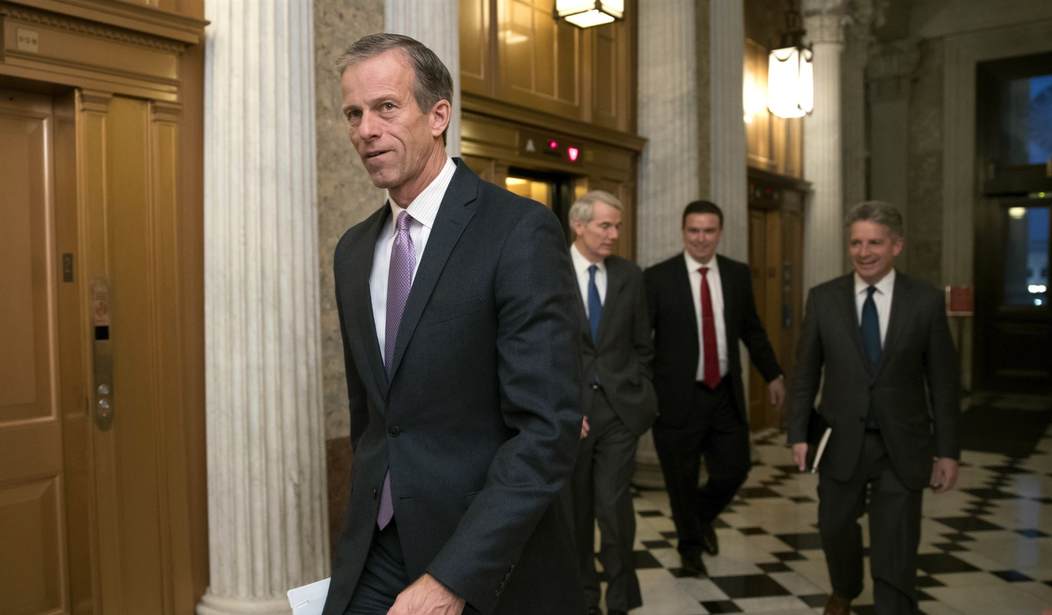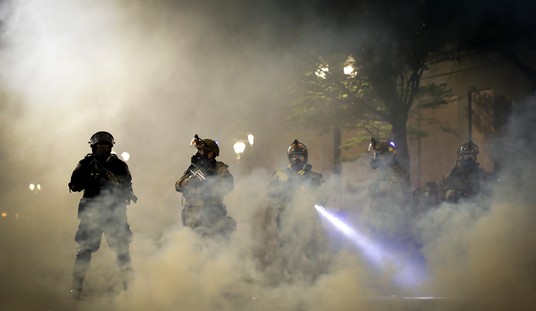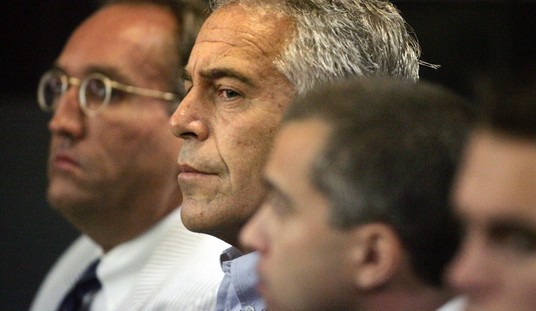Sen. John Thune (R-SD) is the number three Republican in the US Senate. He is a member of Mitch McConnell’s “leadership team” (sic). All of them have rolled over on the massive voter fraud committed by Democrat operatives on Election Day. As a never-Trumper since publicly declaring in early October 2016 that “Trump should drop out immediately,” Thune led the way in bailing on the President and leader of the Republican Party after the November 3rd election, as reported by his largest home-state newspaper, the Sioux Falls Argus Leader, on 6 November:
The third-highest ranking Republican in the nation says he’s seen no evidence that former Vice President and candidate Joe Biden has benefitted from improper or illegal votes.
As one of his constituents, that prompted me to send him a scathing letter calling him out, which I later posted here at Redstate.
Over the next nine weeks (and continuing to this very day), massive fraud has been exposed in several states: ballot harvesting, fraudulent/machine-printed and stamped mail-in ballots, tossing ballots marked for President Trump, fractional automated vote tabulations by voting machines, automated vote-switching by Democrat-controlled ballot marking devices in wide use in swing states, statistical analyses by experts proving fraud, etc. Yet, Thune supports the transition process to a Biden presidency with only tepid statements that “any credible claims of voter fraud should be investigated.” All words and no actions – with “credible” being the typical weasel word of the career politician.
One would think that someone who was himself a victim of voter fraud would be more than just a little sympathetic to the Trump campaign’s efforts to expose all of the fraud in the swing states and beyond. Is it possible that Thune has forgotten how an election was once stolen from him?
In 2002, Thune ran against incumbent Democrat Senator Tim Johnson and lost by 524 votes. Despite a number of “election irregularities,” as they were called at the time, he conceded the election to Johnson on 13 November 2002. Surprisingly, he did not ask for a recount. There were a couple of interesting comments in that linked article on his concession:
Before the election, a contract employee for the state Democratic Party was charged with falsifying absentee voter registration forms. Republicans contended that Democrats knew about it, endorsed it, and counted on fraudulently high turnout from Native American reservations in order to gain extra votes. … Voter turnout on reservations was up …
The feds (!) even conducted an investigation after the fact, as reported by Fox News at the time:
[T]he alleged fraud is said to have occurred on the Cheyenne River Reservation and the Pine River Reservation, and an investigation has been ongoing in six counties. …
According to officials, the FBI has uncovered the registration of minors, dead people, and people who do not exist. Many of the registrations have included bogus names and invalid addresses.
Investigators said in one case a woman was registered to vote a week after her death.
They have also found multiple absentee ballots distributed to the same registered voter but returned with different signatures, the officials said.
One might call it the South Dakota version of election fraud, and it worked like a champ for the Democrat like it always does. (A Democrat activist was subsequently indicted on voter fraud charges.)
As an aside, isn’t it odd that somehow it was okay for the FBI to investigate voter fraud in South Dakota in 2002 but apparently not the much wider-spread fraud allegations in swing states in 2020? Where is the FBI in the midst of all of the reports of election fraud around the US this year? Some argue that the feds don’t have jurisdiction in state election fraud-related cases, and that the FBI has no business investigating them. That’s patently false, as the FBI’s own website on Election Crimes and Security identifies these actions as federal crimes warranting investigation and prosecution, as appropriate:
An election crime is generally a federal crime if:
The ballot includes one or more federal candidates
An election or polling place official abuses their office
The conduct involves false voter registration
The crime intentionally targets minority protected classes
The activity violates federal campaign finance laws
There is plenty of election crime that the FBI should be investigating in 2020!
Finally, I will also offer a personal anecdote that attests to the fraud in that 2002 election. My brother (a retired Marine lieutenant colonel) and I went to school in South Dakota (K through 12) with two boys who later became rabid leftists and Democrat activists, eventually working for leftwing nonprofit organizations in the Washington, DC, area. One of these two activist lawyers told my brother contemporaneously afterward what the team of Johnson supporters from out of state had been doing to support Johnson. They hauled voters to the polls on South Dakota reservations in 2002 and spent money getting people to vote. And my bro told me just yesterday that he would swear to that in court.
John Thune was a victim of voter fraud in 2002, yet he essentially waves away the evidence of massive voter fraud in many states in 2020. Furthermore, he is dead set against challenging the electoral vote count on 6 January, stating, “I just don’t think it makes a lot of sense to put everybody through this when you know what the ultimate outcome is going to be.” That’s gutless, Senator; avoid going on record on where you stand on the most important issue of our times, which allows you to hide your position from South Dakota voters. Is that vengeance against a political enemy (President Trump) or simply the standard hypocrisy of a career politician? Regardless of motive, his lack of support for the President marks him as a top candidate to be primaried and retired in 2022.
The end.














